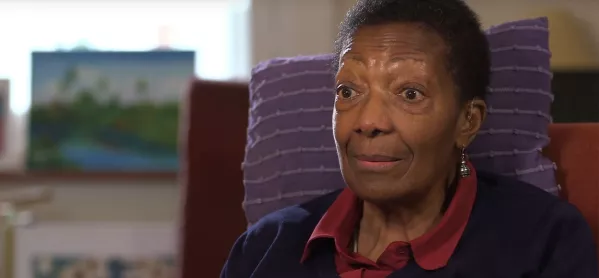- Home
- Why it’s vital that the first BAME heads are recognised
Why it’s vital that the first BAME heads are recognised

The achievement of being the first person to break a glass ceiling for your community can never be underestimated. And being an excellent educator and outstanding headteacher isn’t easy at the best of times. But being the first of your community to do this means you have to work 10 times harder without making any of the mistakes afforded to others. This is rarely acknowledged when awarding national honours.
My father became the first Muslim headteacher in the early 1980s and faced racist abuse from day one of his appointment. He was an excellent headteacher and turned his school into one of the best in the country, but along the way he faced abuse from elements of the education establishment and from parents who didn’t want to see him succeed.
These pioneers know that if they make one mistake they could lose their career, which could then impact the next BAME (black, Asian or minority-ethnic) educator who applies for a headship. That’s what makes these educators exceptional and why we need to recognise them at the highest of levels. Combined with the voluntary work that many of them do in their own and wider communities, the question I ask myself now, given that I sit on the honours committee, is: why did my late father receive only an OBE when many of his non-diverse counterparts were knighted while achieving the same results without having faced the same level of prejudice or having made such contributions in their voluntary work?
But the biggest injustice of all has been the sidelining of the generation of “first” minority headteachers. More than 50 years ago, we had the first generation of black headteachers. The Windrush generation brought a level of excellence in education that was needed to a country developing into a rich multicultural society. When Tony O’Connor, a former RAF sergeant who had served in the Second World War, became Britain’s first black male headteacher in 1967, it came at a time when race relations were at their worst in Smethwick, coming off the back of the most racist electoral campaign in British history. His appointment led to the school walls being daubed with swastikas and racist slogans. Death threats were commonplace and were also faced by both the first and second black female headteachers, Yvonne Conolly and Beryl Gilroy, with Conolly needing to take a bodyguard with her to school.
One thing that the three first black headteachers had in common is none of them ever received a senior national honour. They were exceptional headteachers, just as good, if not better, than other headteachers who had received senior honours. So why were they overlooked when they were in the education system and, more importantly, when they retired?
What also makes this more upsetting is that each of them was active in public service in a voluntary capacity during their working lives and even into their retirement. Dr Gilroy was an active member of the Race Relations Board as well as being a founder member of the Camden Black Sisters. Conolly founded the Caribbean Teachers’ Association, served on the home secretary’s Advisory Council on Race Relations and was a member of the Independent Broadcasting Authority. Sadly, both O’Connor and Gilroy are no longer with us, and national honours cannot be awarded posthumously.
But after four decades of successive prime ministers and governments ignoring the contributions made by our pioneering black headteachers, justice has finally done by Boris Johnson awarding a senior national honour, a CBE, to Yvonne Conolly.
At the start of Black History Month, the prime minister dedicated his video message to Conolly and told of how “she inspired and mentored not only her young charges but also generations of educators”.
The awarding of the CBE has corrected the decades of neglect and sacrifices that our first BAME headteachers made, not only in breaking the glass ceiling but facing abuse and death threats from the far right just for doing their job.
Fifty years on, Conolly has received tributes from HRH The Prince of Wales and the education secretary Gavin Williamson. What is important is that we never forget the contributions our pioneering headteachers have made but also remember that we need to recognise those headteachers and educators who still face prejudice on a daily basis - be it related to their race, sex, faith or sexual orientation. The impact on children from minority backgrounds of having a headteacher who looks, sounds and comes from the same background from you can never be underestimated.
As the Mayor of London, Sadiq Khan, said in his mayoral victory speech: “It was my headteacher Naz Bokhari, an outstanding teacher and a role model for me and thousands of other children at Ernest Bevin College, who encouraged me to go to university and aim to give something back into society. He made me realise that skin colour and background should never be a barrier to fulfilling your potential.”
Now is the time to remember our diverse educators, so please nominate them today at gov.uk/honours. Let’s not allow another generation of educators to pass without acknowledging their contribution to our country.
Harris Bokhari is a national board member of Mosaic - The Prince’s Trust mentoring programme, and founder of the Naz Legacy Foundation
Keep reading for just £1 per month
You've reached your limit of free articles this month. Subscribe for £1 per month for three months and get:
- Unlimited access to all Tes magazine content
- Exclusive subscriber-only stories
- Award-winning email newsletters



